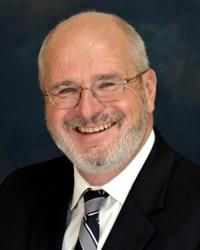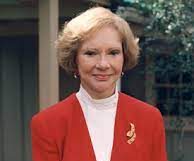Rosalynn Carter, a human first lady
When Jimmy and Rosalynn Carter entered the White House in 1977, they brought with them something new—a realistic understanding of how a successful marriage works.

They were partners. They did not try to hide that basic truth.
Jimmy made it clear that Rosalynn was his closest advisor, the person he most trusted. Both spouses said her political and competitive instincts were more acute than his.
Her status as a full partner in her husband’s presidency was made clear from the beginning.
Office space in the White House is the most coveted political real estate in the world. Rosalynn Carter was the first First Lady in history to have an office in the East Wing. It was a spot from which she advanced the Carter agenda and did her best to cover her husband’s flank.
Marriages that function as partnerships are as old as the republic itself.
Abigail Adams was perhaps the only person on earth who could persuade the often cantankerous and querulous John Adams to stand down when his ire was aroused.
Many of Theodore Roosevelt’s friends and intimates believed he owed much of his success as president to his second wife, Edith Carow Roosevelt. (His first wife, Alice Lee Roosevelt, died when both she and the future president were in their 20s.) The second Mrs. Roosevelt was a superb judge of character. She also possessed a personality strong enough to temper some of TR’s runaway enthusiasms.
But the influence wives may have exerted upon husbands who occupied the Oval Office was at best obscured and often denied.
Even Franklin D. Roosevelt took pains to diminish his wife’s role in his administration. He said she functioned as his eyes, ears and legs because of his disability—but shied away from saying she helped shape his thinking.
The Carters shattered the illusion that it was the husband who did all the thinking in the marriage.
They paid a price for doing so.
Their goal when they entered the White House was to democratize the presidency—to make clear that, in America, leaders spring from and draw their authority from the people they represent.
They sent that signal from the start by choosing to walk, often hand in hand, during the inaugural parade, dispensing with the imperial symbol that was the presidential limousine and bringing the presidency back to earth.
They also talked with more frankness than official Washington found comfortable about subjects close to the lives of most Americans—the challenges of raising children, balancing work and family and making a marriage work.
Even Jimmy Carter’s much-maligned Playboy interview in which he acknowledged having experienced “lust in my heart†was a heartfelt discussion of the discipline required to stay faithful in spirit as well as flesh, a discipline he summoned because he was committed to his wife. The acknowledgement of human vulnerability was an honest one—as was the expression of devotion to his spouse.
His partner.
Rosalynn.
The old guard of America’s political class was not amused. Entrenched in a hierarchy in which women were ornaments, objects of desire or rebels, the Washington, D.C., grandees struggled with the idea that a wife could be something else.
They’re still struggling with that idea.
While the common wisdom says that the decision by the late U.S. Sen. Ted Kennedy, D-Massachusetts, to challenge Jimmy Carter, a president of his own party, in the 1980 election arose from ideological differences, the reality is that there weren’t that many policy disputes dividing the two men.
Kennedy’s complaint about Carter was less about positions than about process—Carter didn’t do things the Kennedy way.
Rosalynn was part of that. Kennedys then weren’t used to having women at the table with them holding places of power.
Rosalynn also didn’t make it easy for people who otherwise might have backed her. Complex, formidable people rarely do.
While she supported the legal rights of women to continue or end a pregnancy, she also expressed moral and ethical reservations about abortion. That nuanced position—which aligns with the view many Americans have—prompted many women’s rights activists to keep their distance from her.
Rosalynn Carter died the other day. She was 96.
Her legacy is complex, a tale of a woman who became a force by emphasizing the things, including the very human doubts and fears, she shared with the rest of us.
May she rest in peace.
FOOTNOTE: John Krull is director of Franklin College’s Pulliam School of Journalism and publisher of TheStatehouseFile.com, a news website powered by Franklin College journalism students. The views expressed are those of the author only a






Which First Ladies does Krull think to be non human? Other than Hillary, of course.
Comments are closed.